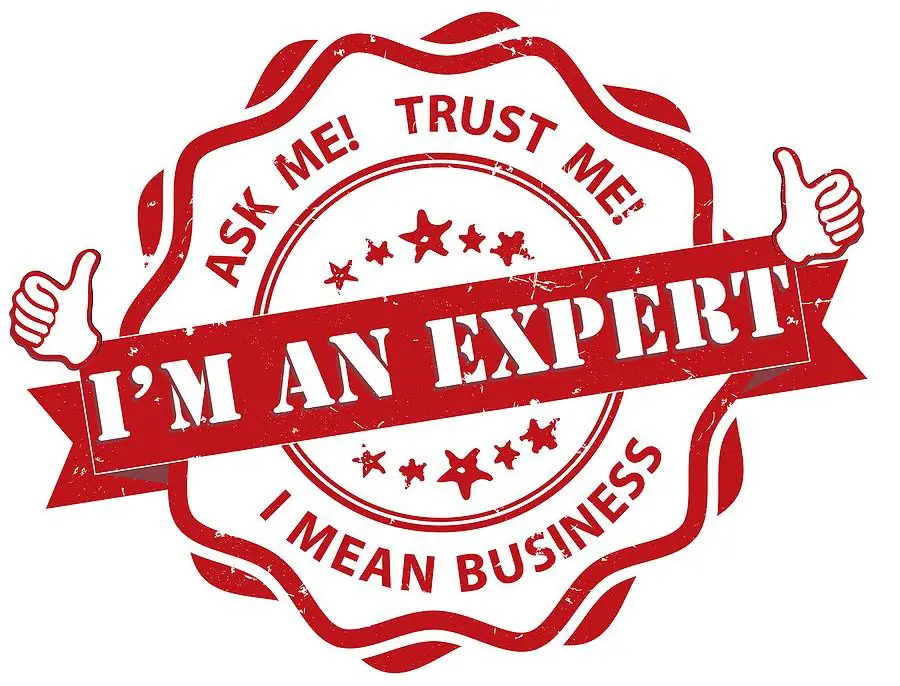Getting paid $5 – $10 per minute for expert network calls can create some stress when you’re just starting out. How can you possibly make every sentence worth that high rate, and will they slam down the phone and vow to never work with you again if you can’t give a masterful answer?
Of course not. But it still feels good to shine when someone is coming to you for your expert opinion, and feedback on your strong performance will put you at the top of the list at expert network companies like GLG, Guidepoint Global or AlphaSights for future projects. So relax, and follow these tips for acing your expert network call:

1. Take a few minutes to establish rapport. The whole purpose of expert calls is to help clients rapidly get to the deep insights and unvarnished truth that took you years to acquire. They are paying you well for knowledge, but these calls can still feel like about as a transactional of a relationship as it comes. Add in the fact that you’re likely being paid by the minute (more on that later!) and you may feel like there is pressure to immediately get down to business.
Resist the urge to go from 0-to-60 and take a few minutes at the start of the call to get to know the client. Ask a few questions about the client’s firm and try to get an understanding of what they’re eager to learn about and their objectives. Take a few minutes to walk them through your background and engage in a couple minutes of small talk before you dive in. It will put you at ease so that you can deliver sharper, more candid responses that better deliver the information that clients are looking for.
2. This isn’t an interview or a sales call. The purpose of an expert network call is to provide a data dump of unvarnished information and opinions. The client wants to know what you’ve seen and done, not what you can do. You’ve already closed the deal by getting paid for the call, and follow up sessions are uncommon – you’re not selling a product or yourself on these calls. Give direct answers and honest opinions. Don’t parrot polished sales pitches that they can find in other places.
3. Name names. Clients are looking to get a thorough lay of the land, and do it quickly. They aren’t interested in hands waving in the air, they are trying to quickly ascertain who’s winning and who’s losing in your industry. Tell them. Which competitor is rapidly shedding customers or top salespeople due to bad management or which vendor is winning new business by the boatload with a great new product? These are the details (and opinions) that they can’t find from a Google search!
4. They love numbers and rules of thumb. Again, it’s the knowledge that you may take for granted that they are desperate to rapidly learn. Investors and analysts tend to be highly quantitative by nature and are often working on financial models to decide if they should invest and at what price. Many will be excited to validate their assumptions, so when you can share typical approaches to setting prices, estimating unit costs or calculating profits they’ll generally get pretty giddy! While you need to strictly avoid sharing proprietary information, publicly available numbers or standard industry practices are fair game and easy sources of expert network call gold!

5. Opine! Clients are eager to hear what you really think; tell them. You likely know much more about the topic you’re covering than they do and they want to know how you think things are going to play out. Many clients will speak to multiple experts, and they are often most interested in seeing how consistent their opinions are. This is one of the best parts of expert network calls – you get (well) paid to yammer on about what you think will be successful and what is a total waste of time and money.
6. Check in – are you giving them what they want? You’re getting paid to talk and will usually consume the majority of the minutes in an hour-long call. Frequently, you may be asked to provide long answers to explain how something works or what you think is going to happen. Be sure to take a pause once in a while to make sure that you are giving the client the type of information that they are looking for.
7. “I don’t know” is a fine answer. Sometimes it can be a little intimidating holding court as a high paid expert. You’re bound to get some questions that are outside of your wheelhouse and may feel pressured to fill the air time. But don’t be afraid to say that you don’t know the answer to that question or that it’s not your area of expertise. Admitting you don’t know all of the answers helps provide more confidence in the information that you do provide. Many investors have a finely tuned bullshit detector and they are going to quickly disengage (and potentially complain to the network that connected them to you) if it’s clear that you’re just spewing nonsense. Clients usually come to these calls with a long list of prepared questions and they won’t miss a beat if they need to skip to the next one on their list.
8. Don’t be afraid to disagree. The genesis of expert network calls is often someone trying to verify an idea or investment thesis. They are investing time and money to explore this idea with you (and usually others) to validate if they are on the right track. While salespeople or investor relations folks will always look to provide positive spin, clients are coming to you for the truth. Tell them directly when they are off the mark or if you disagree with their core idea or assumptions. They won’t be offended – generally the opposite – as your feedback could be a valuable datapoint that prevents a multi-million dollar bad decision!
9. Know your limits. Some juicy nuggets just can’t be shared. Sharing confidential information or non-public information about a public company is a strict no-no (in fact, it can be a pretty severe crime!) So, you’ll need to get that recipe for the secret sauce to yourself. Don’t worry, every firm will require you to complete some brief expert network compliance training on how to identify and avoid sharing things that you shouldn’t. Many clients will start a call with a reminder that they don’t want you to share any prohibited information either. Most calls or transcripts are reviewed by compliance teams to ensure that no questionable information was exchanged, so you’re not going to feel any pressure to bend the rules.
10. They don’t care about the clock. Just like phone sex, you get paid by the minute with many expert networks. So, while your consulting rate may be $500/hour it can be nerve-wracking knowing that you are really making $8.33/minute and that a shorter call could result in several hundred dollars in missed opportunity.

Relax, the client doesn’t have their finger hovering over the disconnect button, ready to stop your meter from running up a larger bill as soon as there’s a brief lull in the conversation. In fact, they usually don’t care how long the call runs because they’ve paid a fixed rate for it and have no clue that you are paid by the minute! Most clients come into calls with a very long list of questions, so you’ll rarely have trouble filling the hour.
So there is no time pressure; they go into the call expecting to spend an hour on the phone with you. Take the time to give thoughtful answers. Let the client set the pace of the call. Suggest other, related topics that they may want to explore with you. When you can, it’s also helpful to leave a little bit of buffer time in your schedule in case a call runs over the allotted time – it’s always fun to earn a few extra bucks by keeping an interesting conversation going a little longer!
>>> Click here to register as a GLG Council Member and start receiving project opportunities.
- Dialectica Review – High Paying Expert Network - February 9, 2024
- The Ultimate Guide to Expert Network Consulting - February 8, 2024
- AlphaSights Review – Can You Really Earn $500+ an Hour? - February 5, 2024

